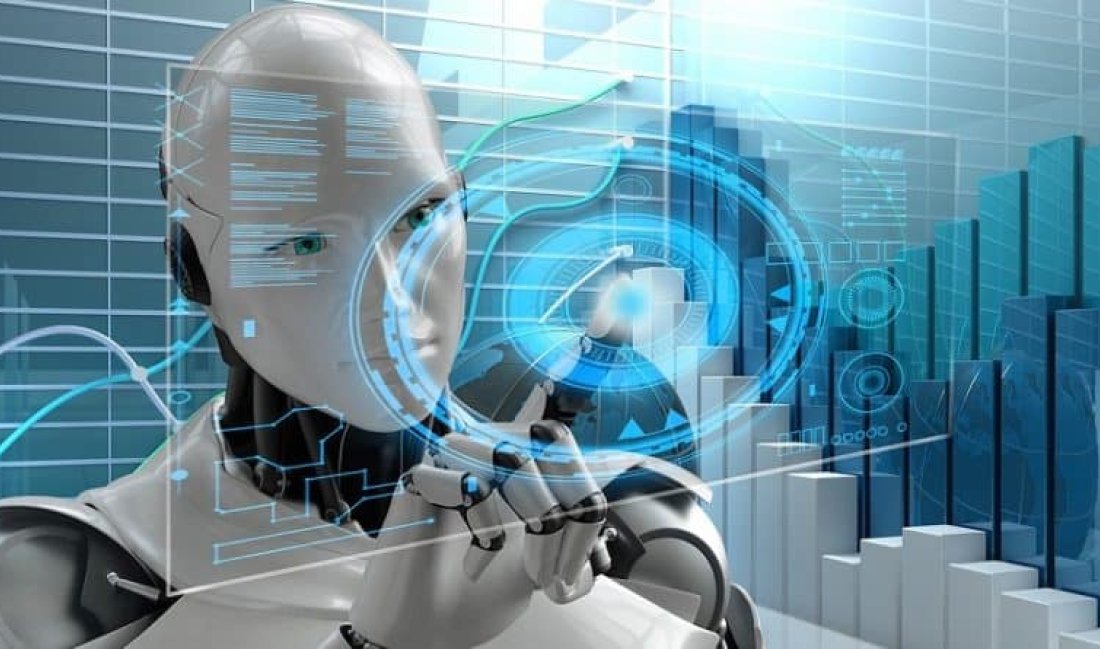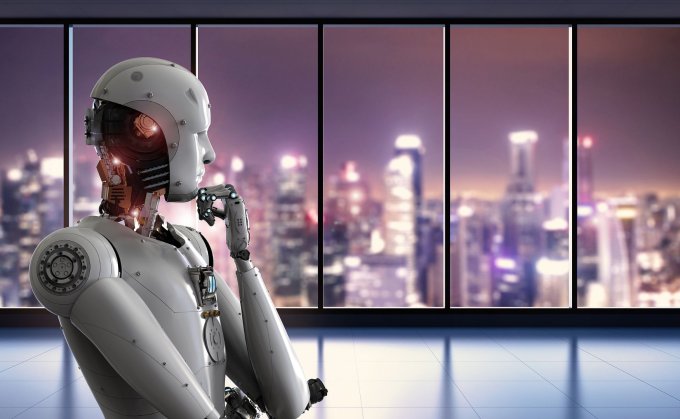
Industry plays a key role in the economic and social development of countries around the world. The dynamic technological and social changes that have taken place in recent decades have led to the emergence of modern industries, while posing new challenges to traditional industries. In this article, we will discuss what characterizes traditional and modern industries around the world. With research, examples and expert opinions, we will dive into an informative journey that will help better understand the differences, challenges and prospects of the two types of industries.
Traditional industries include those that have long existed and shaped the economies of many countries. These industries are based mainly on natural resources, hard manual labor and often low levels of technological sophistication.
The main sectors of traditional industries include:
The mining and quarrying industry has a long history, dating back to ancient times, where metals, coal and other minerals were the primary raw materials. Poland, with its rich coal resources, was one of the leaders in this sector in Europe for many decades.
The metallurgical industry developed as the demand for steel and other metals, which are the foundation for infrastructure and construction development, grew. Poland, led by the Silesian Basin, was a significant producer of steel, used in construction and related industries.
The textile sector, which has been an important part of the European economic landscape since the Industrial Revolution, has gained importance in Poland, particularly in the regions of Lodz and Bielawa. Many factories operating in Poland still produce textiles, although their importance in the international market has diminished over time.
Agriculture and forestry, as the oldest areas of the human economy, have continually played a key role in providing raw materials, food and work for many people. Poland, with its rich agricultural traditions, is one of the leading food producers in Europe.
The traditional industry faces a number of challenges due to intensified competition in the global marketplace, technological advances and growing social and environmental expectations.
Cost and efficiency pressures
In the era of globalization, industrial production is moving to regions where labor costs are lower. This phenomenon is affecting most countries, especially in Europe, where high labor costs are becoming increasingly difficult to offset. Poland, despite some cost advantages among other European countries, must constantly modernize its plants and processes to remain competitive.
Technological progress
Technological advances, which are reflected in the automation and digitization of processes, present both opportunities and threats to traditional industries. For example, the textile industry can benefit from more advanced machinery and production systems, but these investments can be costly and not always profitable in the short term.
Social and environmental expectations
Increased environmental and social awareness among consumers is forcing companies to take a more responsible approach to production. Environmental standards and sustainability pressures present challenges that require investments in environmentally friendly technologies, as well as changes in corporate policies.
Despite the challenges, the traditional industry still has growth prospects. Key here will be:
Plants that are able to effectively implement innovations and adapt to changing market trends have a chance to continue to grow and remain competitive in the global market.
Modern industry is developing at a pace unprecedented in human history, thanks to the rapid development of technologies such as robotics, artificial intelligence, the Internet of Things (IoT) and information and communication technologies.
The sectors of modern industry include:
The ICT industry plays a key role in technological development around the world. Poland, thanks to a growing number of startups and technology companies, is becoming an increasingly important player on the ICT map. The sector includes software development, IT services, as well as the production of electronic devices.
High-tech manufacturing, which includes electronics, medical equipment and high-tech industrial equipment, among others, is another important sector. As an economy with a good manufacturing infrastructure, Poland supplies many components and technologies to companies around the world.
Aerospace is a sector that requires the highest level of technical sophistication. As a member of the European Space Agency (ESA), Poland actively participates in research and production projects related to space exploration.
Renewable energy represents the future of the energy industry. Poland, with its abundant wind and solar energy resources, is investing in modern power generation technologies that help reduce CO2 emissions and protect the environment.
Despite its numerous benefits, the modern industry faces a number of challenges that require innovative solutions and close cooperation between different sectors.
High investment costs
Modern technologies require significant investment, which can be a barrier for many companies, especially small and medium-sized enterprises. Poland is trying to support innovative projects with EU funds and government programs, but access to financing can still be difficult.
Demand for highly skilled personnel
Modern industry requires specialized knowledge and skills, including knowledge of advanced technologies, programming and data analysis. Poland is strengthening technical and engineering education, but there is still a need to further educate current and future workers.
Rapidly changing technology standards
In the world of modern technology, change is inevitable and occurs at a rapid pace. Companies must be prepared to constantly update their hardware, software and manufacturing processes. Poland, being part of the global market, actively participates in international initiatives that help keep up with the latest technological trends.
Modern industry, based on innovation and advanced technologies, has great prospects. Key will be:
Poland, by investing in modern technologies and supporting innovative projects, has a chance to be an important player on the global industrial scene.

The Third Industrial Revolution, which introduced new forms of automation and computerization of production processes, revolutionized the way goods are produced. Industry 4.0 goes even further, introducing the full integration of cyber-physical systems.
Industry 4.0 is a comprehensive concept that includes:
The Internet of Things (IoT) allows machines, devices and systems to be fully networked, enabling effective communication and collaboration. Poland, for example, through investments in smart factories, is becoming a place where IoT is playing an increasingly important role.
Artificial intelligence (AI) introduces a new level of automation and data analysis, allowing for more precise and efficient manufacturing processes. Poland, with its many research centers and technology companies, is actively participating in the development and implementation of AI technologies in industry.
Robotics and automation are key elements of Industry 4.0. Advanced industrial robots can perform complex tasks with high precision and speed. Poland, with a growing number of factories introducing advanced automation systems, is witnessing a revolution in manufacturing.
Big data and data analytics make it possible to collect, process and analyze large amounts of production data, which in turn allows for process optimization and better resource management. Polish companies are increasingly using big data technology to improve their efficiency and competitiveness.
Cloud computing is an indispensable part of modern manufacturing, offering flexible and scalable IT solutions. Polish companies are using cloud computing to reduce costs and increase their productivity.
The introduction of Industry 4.0 also brings challenges that require careful planning and implementation.
Integration of systems
One of the main challenges is the integration of different systems and devices, which must work together effectively. Poland, through the development of communication standards and protocols, is trying to facilitate this process, although this requires significant investment and expertise.
Data security
In the era of digitization, data and system security is becoming a key issue. As a member of the European Union, Poland is implementing rigorous standards for the protection of personal and industrial data, but cyber threats remain a real challenge.
Social and ethical issues
Automation and robotization of manufacturing processes can lead to fewer jobs, which raises social concerns. Poland, through support programs and labor market transformation, is trying to minimize the negative effects of these changes by promoting the development of new skills and professional qualifications.
Industry 4.0 has great potential to transform manufacturing, making it more efficient, sustainable and innovative. Poland, investing in modern technologies and education, has the opportunity to become a leader in this technological revolution.
Sustainability is becoming an increasingly important part of industry strategies around the world. It encompasses both environmental and social aspects of production.
Industry, being one of the main users of natural resources, must promote technologies that minimize environmental impact.
Renewable energy
Renewable energy, such as wind, solar, biomass, is a key element of sustainable development. Poland, with its rich natural resources, is actively investing in renewable energy projects, reducing its dependence on fossil fuels.
Closed loop economy
A closed-loop economy is a model in which products and materials are reused and waste is minimized. Poland is introducing regulations and programs to support recycling and waste reduction in industry, allowing for more efficient and environmentally friendly management of resources.
Resource-saving technologies
Innovative technologies that reduce energy and water consumption are becoming increasingly popular. Examples of such solutions are modern energy management systems in factories and water purification and recycling technologies. Poland is actively supporting the development and implementation of these technologies, which allows companies to operate more economically and environmentally.
Sustainable development is not only ecology, but also social issues. The industry must act in accordance with the principles of social responsibility, taking care of the welfare of employees and local communities.
Working conditions
Improving working conditions, ensuring safety and equal employment opportunities are key aspects of sustainable industrial activity. Poland is introducing regulations and standards to raise labor standards in industry, aiming to ensure decent employment conditions for all workers.
Education and professional development
Investing in the education and professional development of employees is an indispensable part of sustainable development. Poland promotes training and education programs to enhance the professional skills of industry employees, allowing them to better adapt to the rapidly changing demands of the labor market.
Sustainable industrial development is a necessity in the face of global environmental and social challenges. Poland, through its environmental protection and social responsibility efforts, can contribute to a more sustainable and fairer industrial world.
Traditional and modern industries play key roles in economies around the world. Each of these sectors has its own unique characteristics, challenges and development prospects. Poland, as a dynamically developing country, is actively participating in the development of both types of industry, striving to harmoniously combine traditional values with modern innovations. Sustainability, integration of new technologies and social responsibility will be key factors that will determine the future of the industry in Poland and around the world.